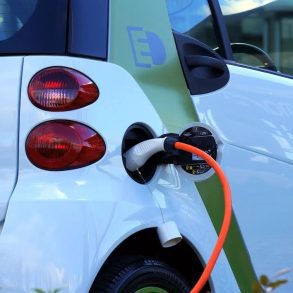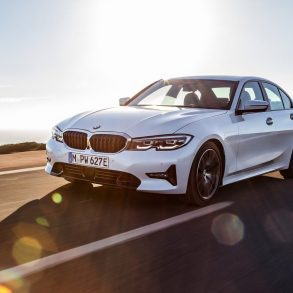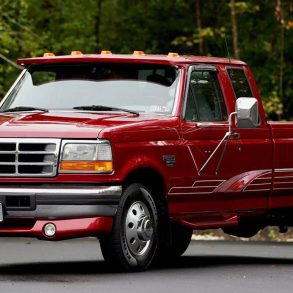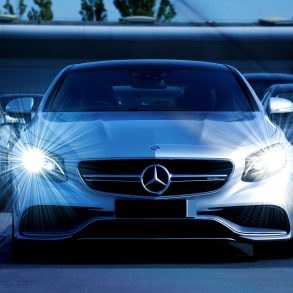
 Fiat Chrysler Automobiles CEO Sergio Marchionne has again claimed that the automotive industry needs more consolidation, and that within a few years time, automakers that sell less than 6 million cars a year worldwide won’t be able to stay competitive. Toyota, Volkswagen and General Motors currently sell at around 10 million units a year, Renault-Nissan 8,5 million and Hyundai-Kia 8 million, which means at 4,75 million sales in 2014, FCA is trailing both its main competitors and its own “bar for succes”. Before 2020, Marchionne envisions himself making another “huge deal” with another automaker in order to reach sufficient economies of scale. He has also hinted that he would like to get either General Motors or PSA Peugeot-Citroën at his table to negotiate the possibilities of a merger. But I think he’s looking in the wrong direction.
Fiat Chrysler Automobiles CEO Sergio Marchionne has again claimed that the automotive industry needs more consolidation, and that within a few years time, automakers that sell less than 6 million cars a year worldwide won’t be able to stay competitive. Toyota, Volkswagen and General Motors currently sell at around 10 million units a year, Renault-Nissan 8,5 million and Hyundai-Kia 8 million, which means at 4,75 million sales in 2014, FCA is trailing both its main competitors and its own “bar for succes”. Before 2020, Marchionne envisions himself making another “huge deal” with another automaker in order to reach sufficient economies of scale. He has also hinted that he would like to get either General Motors or PSA Peugeot-Citroën at his table to negotiate the possibilities of a merger. But I think he’s looking in the wrong direction.
Managers at the new GM still flinch when they recall the last deal the old GM struck with Marchionne, the one that forced them to either buy the remaining 80% of the money-losing Fiat brand they didn’t already own, or to pay them $ 2 billion to get out of the contract. They opted for the latter and Marchionne used exactly that money to turn Fiat around before buying Chrysler out of bankruptcy. PSA has been saying for a while they’re only interested in partnerships and collaborations, not in mergers. Their company’s recently been rescued by the French state and their Chinese partner Dongfeng Motor and has only just returned to profitability under leadership of Carlos Tavares. Tavares doesn’t share Marchionne’s quest for scale, as he thinks smaller automakers can still remain profitable, naming Honda as an example.
Considering Fiat’s relative strength in Europe and South-America, and Chrysler’s dependence on North America, FCA obviously lacks a foothold in Asia and the still small but promising African markets, so a deal with an Asian manufacturer would make sense. With none of the South-Korean manufacturers available, one might easily look to Japan, where Honda, Suzuki, Subaru and Mitsubishi are all relatively small and still independent. But they’re all doing fine by themselves and won’t have much interest in a merger with a company that has a sub-par operating margin of just 3,4 percent and is up to its eyeballs in debt even before investing billions into trying to break into the luxury car market with Alfa Romeo and Maserati.
Why a Chinese partner would make sense
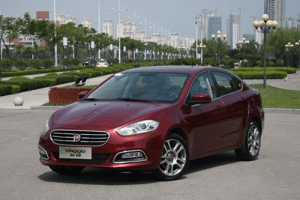
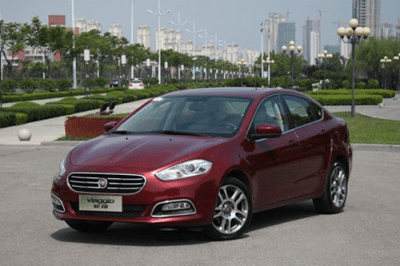 Instead, Marchionne should look to China. It’s the largest single auto market in the world, and FCA is barely present there; their current line-up of a locally produced Fiat compact sedan and hatchback are failing hard, and Jeep is the only brand in their stable that has a shot of breaking through, thanks to its global brand recognition and line-up of SUVs. A Chinese partner would give FCA quick and easy access to the vast Chinese market and the GAC brand could be marketed as their value-for-money brand in other Asian and African markets and even Russia, in the same way Renault-Nissan are using Dacia and Datsun. The Jeep and Fiat brands could then piggyback on that roll-out. In these markets, FCA is currently a niche player, if they’re even available at all.
Instead, Marchionne should look to China. It’s the largest single auto market in the world, and FCA is barely present there; their current line-up of a locally produced Fiat compact sedan and hatchback are failing hard, and Jeep is the only brand in their stable that has a shot of breaking through, thanks to its global brand recognition and line-up of SUVs. A Chinese partner would give FCA quick and easy access to the vast Chinese market and the GAC brand could be marketed as their value-for-money brand in other Asian and African markets and even Russia, in the same way Renault-Nissan are using Dacia and Datsun. The Jeep and Fiat brands could then piggyback on that roll-out. In these markets, FCA is currently a niche player, if they’re even available at all.
The Chinese brands are increasingly looking across their borders to expand their presence in other parts of the world. Not only by exporting their vehicles to mostly (for now) developing car markets in Asia, Africa and South-America, but also looking to buy stakes or complete Chinese ownership of western brands. A small example is Youngman’s attempt to buy the remains of bankrupt SAAB, or the successful acquisition of Fisker by auto parts maker Wanxiang, who has renamed the brand Elux, or at a much larger scare the ownership of Volvo by Geely. A partnership with FCA by one of the local brands would help the Chinese carmakers be taken more seriously across the globe.
Why it’s unlikely to happen
However, there are a few issues that make a potential merger with or takeover of a Chinese manufacturer by FCA highly unlikely.
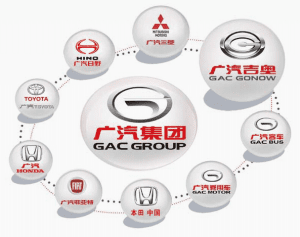
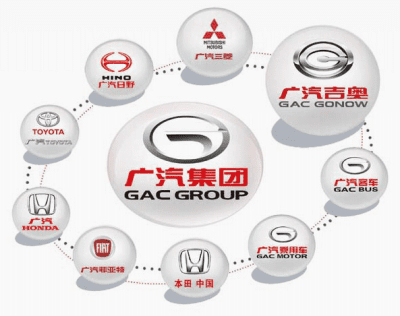 First, Fiat currenly has such a Joint Venture with GAC (Guangzhou Automobile Group Co.) for the production of the Fiat Viaggio and Ottimo and for the planned production of Jeeps in China in the near future. However, GAC also has similar manufacturing Joint Ventures with Honda, Mitsubishi and Toyota, which makes a merger to FCA complicated and highly unlikely. Or does it? Dongfeng Motor’s Joint Ventures with Renault-Nissan and Hyundai-Kia didn’t stop it from taking a 14% ownership stake in PSA Peugeot-Citroën…. But then again, that’s the other way around, with the Chinese on the buying side of the table. Even with the Chinese being the predator and not the prey the deal took a long time to be approved by the Chinese government.
First, Fiat currenly has such a Joint Venture with GAC (Guangzhou Automobile Group Co.) for the production of the Fiat Viaggio and Ottimo and for the planned production of Jeeps in China in the near future. However, GAC also has similar manufacturing Joint Ventures with Honda, Mitsubishi and Toyota, which makes a merger to FCA complicated and highly unlikely. Or does it? Dongfeng Motor’s Joint Ventures with Renault-Nissan and Hyundai-Kia didn’t stop it from taking a 14% ownership stake in PSA Peugeot-Citroën…. But then again, that’s the other way around, with the Chinese on the buying side of the table. Even with the Chinese being the predator and not the prey the deal took a long time to be approved by the Chinese government.
Which brings us to my next point: the Chinese government will probably block any full buyout of a Chinese company by a foreign entity. They are very protective of their enormous home market, only allowing foreign automakers to produce locally when they do so in a Joint Venture with a local manufacturer, like FCA does with GAC. This is all done in an attempt to make sure the local automotive industry can profit from the sheer size of their domestic market and protect them against direct competition from the huge and powerful foreign automakers. A takeover by or merger with a foreign competitor does exactly the opposite.
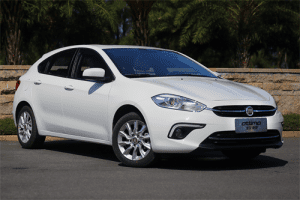
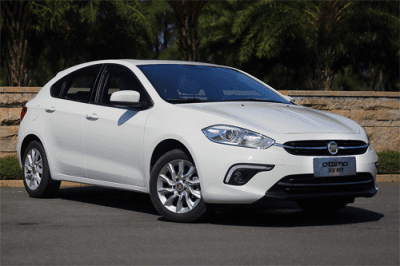 Then there’s the matter of size. At just over 1.1 million cars produced in 2014, more than three quarters of them by the JVs with Honda and Toyota, GAC isn’t large enough to push combined sales after a merger with FCA significantly above the 6 million units threshold Marchionne sees as the bare minimum to survive. Hinting at Ford and PSA gives us some insight at the sort of size Marchionne is looking for, so a small Chinese brand that mostly produces for direct competitors of FCA isn’t likely to be on his radar. I guess the deal is too small to satisfy Sergio’s addiction to negotiating and deal-making.
Then there’s the matter of size. At just over 1.1 million cars produced in 2014, more than three quarters of them by the JVs with Honda and Toyota, GAC isn’t large enough to push combined sales after a merger with FCA significantly above the 6 million units threshold Marchionne sees as the bare minimum to survive. Hinting at Ford and PSA gives us some insight at the sort of size Marchionne is looking for, so a small Chinese brand that mostly produces for direct competitors of FCA isn’t likely to be on his radar. I guess the deal is too small to satisfy Sergio’s addiction to negotiating and deal-making.
Still, I think it would fill a few large white spots in their global footprint and would be easier to digest for the already debt-laden automaker. I don’t see which other Western or Japanese would be interested in partnering with FCA, as many of them have already let him know.


